How Observers Will Monitor the NPP Referendum
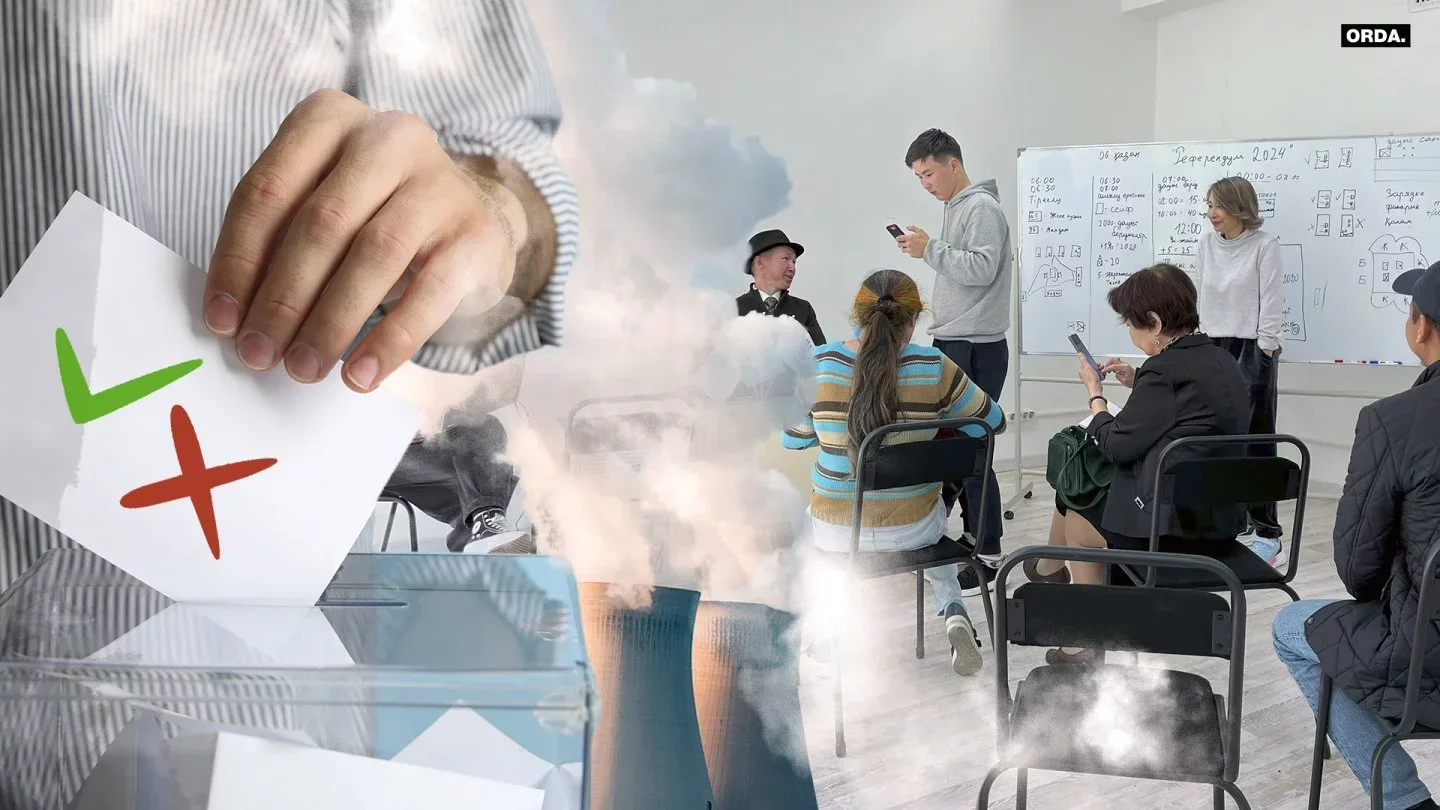 Photo: Orda
Photo: Orda
Kazakhstan's referendum on constructing a nuclear power plant is set to be held on October 6, 2024. Observers will monitor it. Orda.kz has looked into how they will operate.
The Central Election Commission reported on September 3 that there are over 10,000 polling stations throughout Kazakhstan, where more than 70,000 election commission members will work. Observers will be involved to ensure compliance with the voting regulations.
Awoken
The main criterion for selecting observers is the candidate's age. As for voting, they must be at least 18. Meanwhile, citizens deemed incapable by a court or are incarcerated under a court sentence are not allowed to participate in observation and voting.
Just a few years ago, any representative of a non-profit organization had the right to be an observer, possessing a certificate confirming their authorization. However, now special accreditation is required. Depending on the territory in which the organization plans to operate, the document is issued either by the Central Election Commission or the regional commission. Political parties also have the right to send their observers; they do not require accreditation.
Observers were not easy to find for interviews. Many did not want to comment. Some political parties, such as the National Social Democratic Party, Respublica, and the Green Party "Baytak," are not sending observers to the referendum. Orda.kz found people willing to speak from "Tauelsiz Baqylaushilar KB."
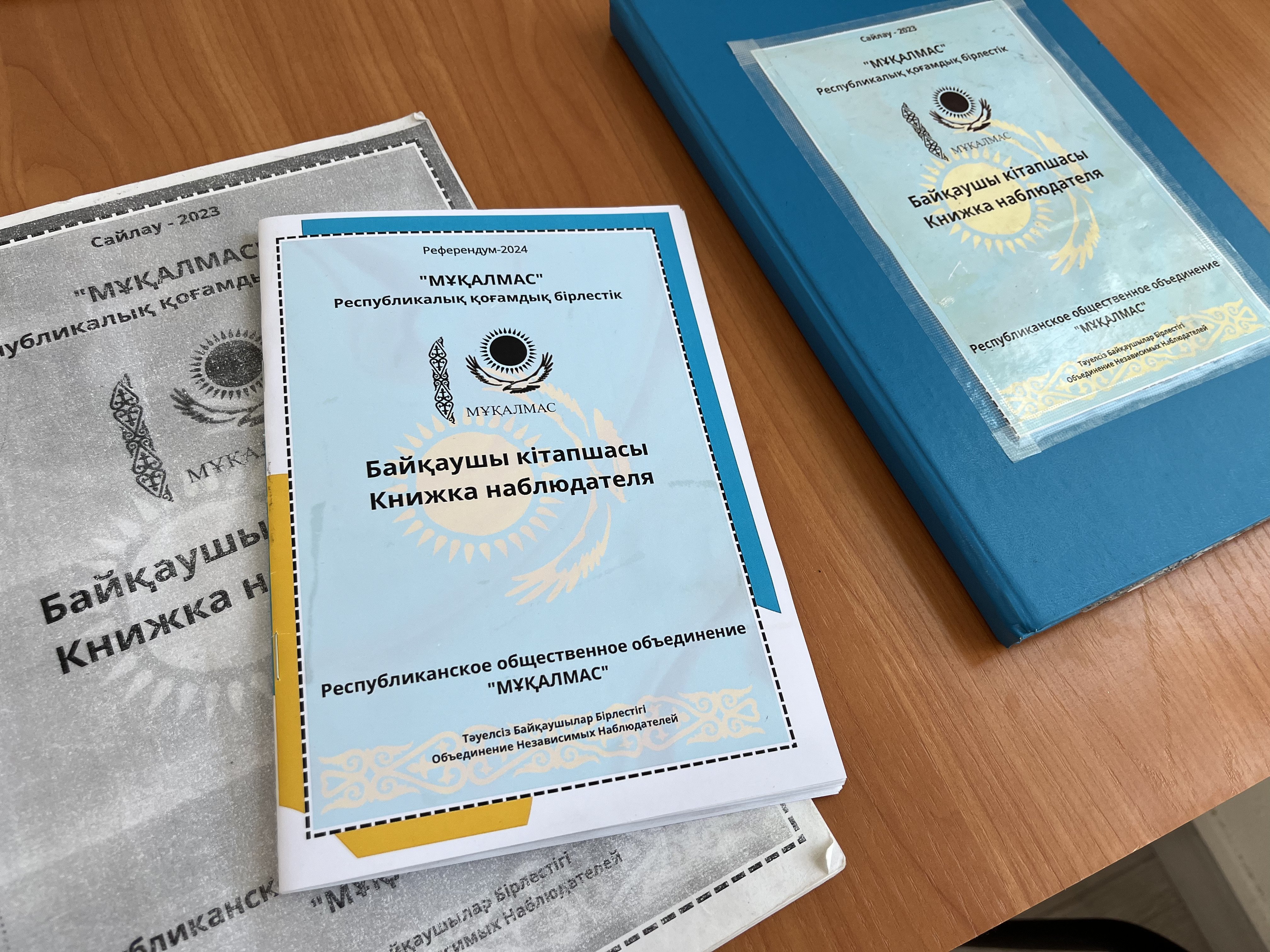
Aigul Ayabergen, an independent Tauelsiz Baqylausylar KB observer, shared that most often, people of the older generation work as observers because “they have nothing to lose." Students interested in politics have also appeared in the last couple of years.
The "middle agers" are "disconnected" because they are busy making money and raising children. One woman from the observers told me that when children are preschoolers, it is not so bad, but when they study at the institute, then they start to put pressure: 'We will expel children from universities' and so on,says Aigul.
Our correspondent had some difficulty finding the independent observers' office. There are no floor or office numbers on online maps and no signs or indications of where the organization's headquarters is located. The office is small: just a couple of tables, a board, and chairs.
We keep the apartment we rent a secret. We try to say face to face where we are going to meet, so that they don't jam our internet, says our interlocutor.
According to the organization's members, during the last elections, the lights were turned off on the floor where Tauelsiz Bakylaushilar KB's office was. On election day, their internet connection was jammed.
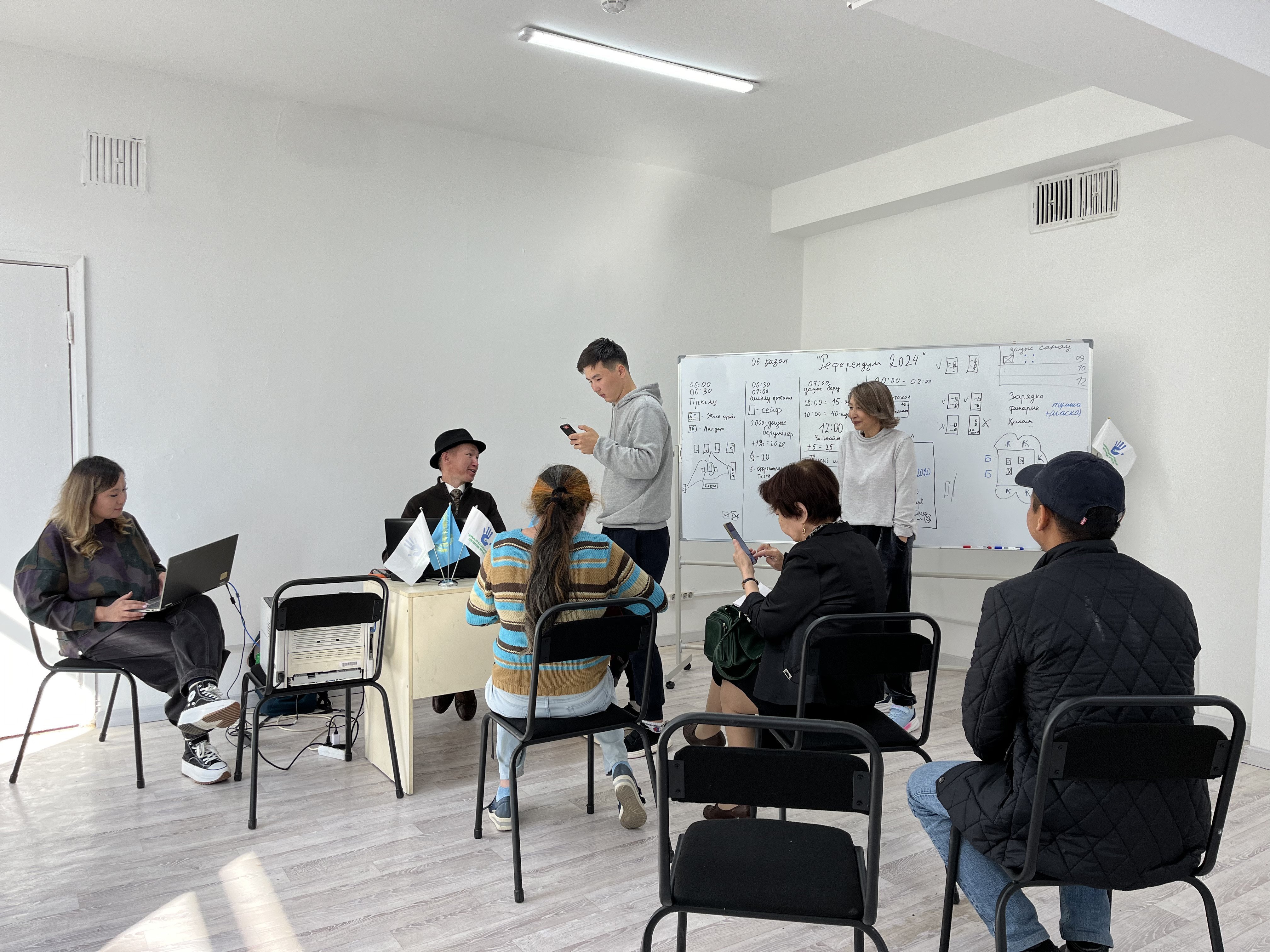
We won't be in this office on October 6, we'll be somewhere else. Why? I don't know. We just want the vote to be fair. Yes or no, for or against,
Aigul states.
Formal Observers
The polling station opens at seven in the morning and closes at eight in the evening. Observers arrive at the site at six. After the polling station closes, they begin counting votes. Punctuality is strictly observed.
Aigul Ayabergen said:
If you come at 06:05, they won't let you in: supposedly there are no places. We went through such difficulties during quarantine.
Ayabergen claims that in 2020 when there were parliamentary elections, public associations that received budget grants were created. They nominated their observers, who occupied these places at the polling stations.
There are currently no restrictions on the number of people, but formal observers have been noticed even after the quarantine.
We have recorded that some organizations either exercise their powers formally – leaving the polling stations after the end of voting at 20:00, without bothering to receive protocols or tally up the voting results – or they begin to actively obstruct the work of independent observers, said civil activist and observer Alnur Ilyashev.
Ilyashev says formal observers sometimes provoke conflicts, creating formal grounds for detaining and, so to speak, removing independent observers from their polling stations. They thereby take away the opportunity to monitor the voting process and vote counting. Students and teachers were mainly noticed among such observers.
We call them fake observers. They were paid 10,000, for example, in 2020. In the following years, they received 15-20 thousand. And they got this for coming at seven in the morning, not six, serving their time and leaving at eight in the evening. They came in pairs, Aigul noted.
Same Hair, New Look
There may be non-compliance with polling station regulations by ordinary citizens who came to vote.
The only way to document electoral law violations is through video recording. Observers document everything. The influx usually occurs between ten in the morning and one in the afternoon.
The office of independent observers shared several stories with an Orda.kz correspondent when people could have consciously or unintentionally influenced the voting results.
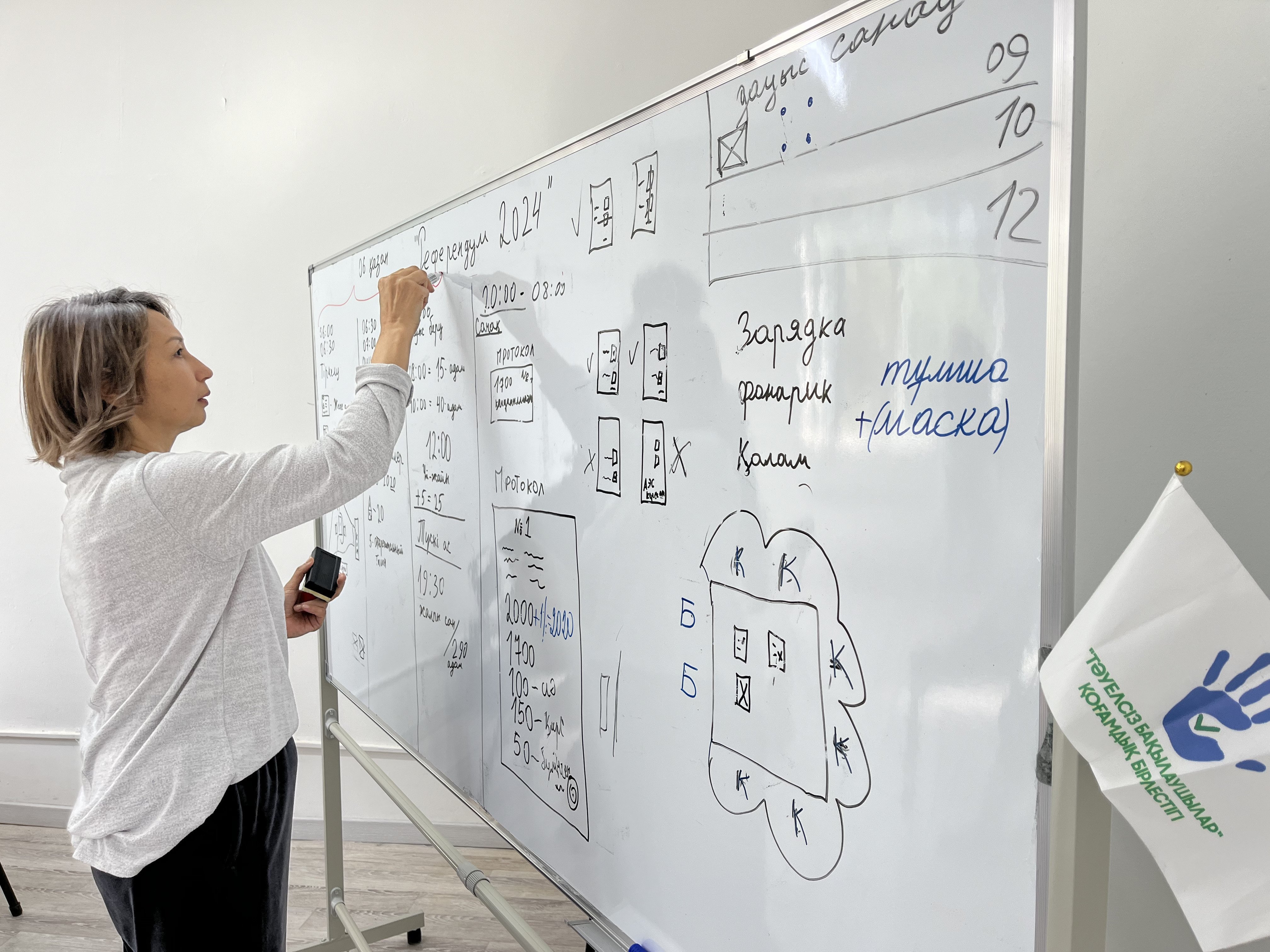
There are most often cases where the polling station indicates where to mark the ballot papers without realizing that they are violating the law at that moment. This usually happens to elderly people who have difficulty seeing what is written. They may be told, "Put 'for' right here."
Villages also have examples: civil servants who think they can vote for family members; for example, a husband who does not come, and his wife decides to vote for him.
Observers also saw people who came several times, changing clothes and hairstyles, pretending to be different voters. If a violation is recorded, a report is completed. It is later sent to the Central Election Commission and then to court.
Behind Closed Doors: How the Votes Are Counted
The ballot will only contain one question: “Do you agree with the construction of a nuclear power plant in Kazakhstan?” The options: “Yes, I agree” or “No, I do not agree.”
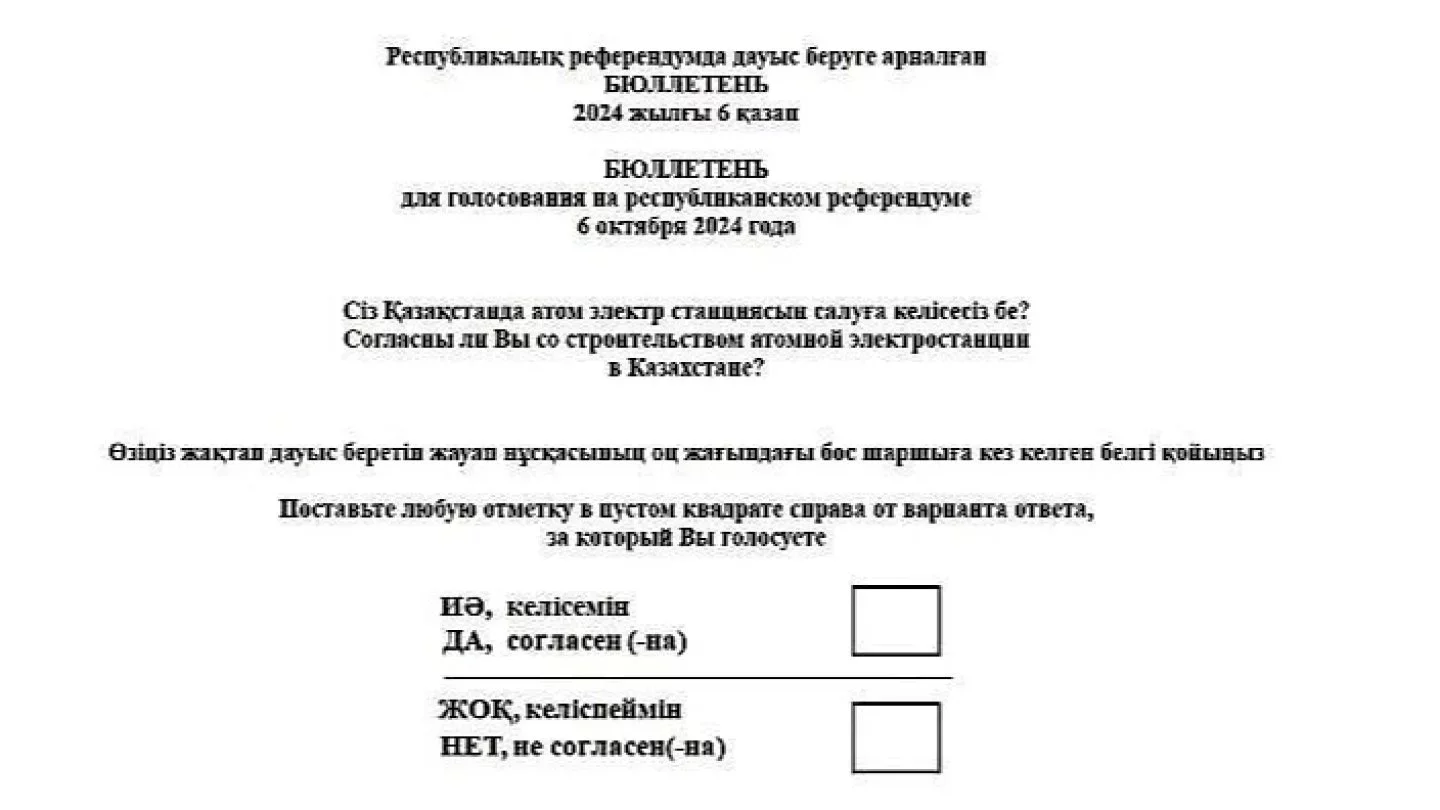
At eight o'clock in the evening, counting begins. There should be no outsiders at the polling station, not even police officers — only members of the commission, its chair, and observers remain.
They set up a video camera to document any violation. The unused ballots are initially counted, then are "invalidated" - a corner is cut off. They are later sealed and removed from the table.
The ballot boxes are then emptied, and the ballots are sorted into piles for counting. During this process, the observer has the right to request to examine a specific document to ensure no violations.
Sometimes they make mistakes accidentally due to fatigue, and sometimes the people of the precinct election commission have a specific plan, and they carry out the corresponding manipulations. The task of the observer is to prevent this, to record the specific result at the precinct, how the voter voted, the turnout, and then all this is drawn up in the form of a protocol, it must be on paper, explains Alnur.
The number of ballots can only be fewer. If there are more, someone tried to stuff.
When more ballots are pulled out of the ballot box, it is already a criminal case. The election commission can have legal action brought against it, says Aigul.
On October 6, the country's residents will decide in a referendum whether to build a nuclear power plant in Kazakhstan. The referendum will be considered valid if more than 50% of voters participate.
Original Author: Alina Pak
DISCLAIMER: This is a translated piece. The text has been modified, the content is the same. For accuracy, please refer to the original article published on 04/10/24 in Russian.
Latest news
- EU Approves New Sanctions Targeting Russian Oil Industry and Banks
- Analyst Arman Beisembayev Explains the Record-Breaking Exchange Rate
- Qarmet and China’s Dadi Engineering Sign Coal Modernization Deal
- Zelenskyy Tasks Umerov with Intensifying Negotiations
- Georgian Dream Sees EU Visa Threat as Pressure
- Saken Mamash: Former Kazakh Diplomat Sentenced to Six Years for Abuse of Ex-Wife
- Kazakhstan Has Used 60% of Its National Fund Transfer Quota in First Half of 2025
- Oil Company Pays Nearly 200 Million Tenge in Wage Arrears
- Journalist Lukpan Akhmedyarov Says His YouTube Channel Has Been Removed
- Trump Raises the Stakes: Could Kazakhstan Face Secondary Sanctions?
- Uzbekistan, Afghanistan, and Pakistan Sign Agreement on Trans-Afghan Railway Feasibility Study
- Maintenance Completed at Pavlodar Petrochemical Plant Ahead of Schedule
- Tied to a Saddle and Dragged Across the Steppe: Family Blames Husband for Woman’s Death in Jetisu
- Renowned Poet and Playwright Israil Saparbay Passes Away at 84
- Scandal Over UAS Escalates with Russian Link and Legal Concerns
- Kairat Perizat: Witnesses Describe Fundraising at NIS and Large Cash Transfers in June 17 Hearing
- Syrian President Pledges Security For All Amid Sweida Tensions and Israeli Strikes
- KNB Anti-Corruption Service Detains Regional Tax Official in Aqmola
- Aqtau Faces Power Outages Amid MAEK Equipment Issues
- President Signs Law on Governance, Infrastructure Development

